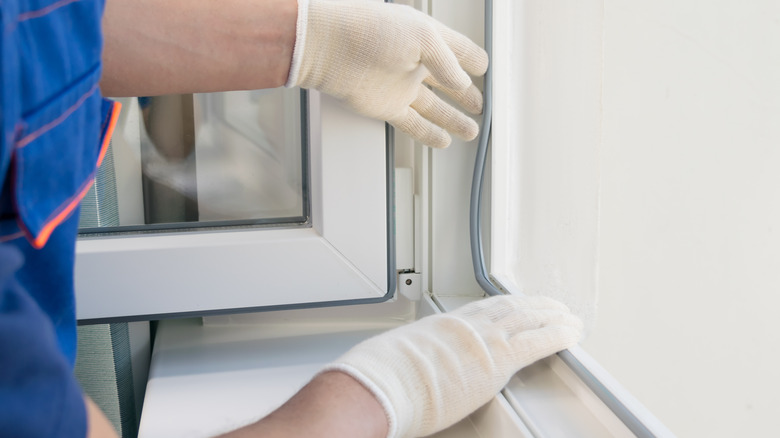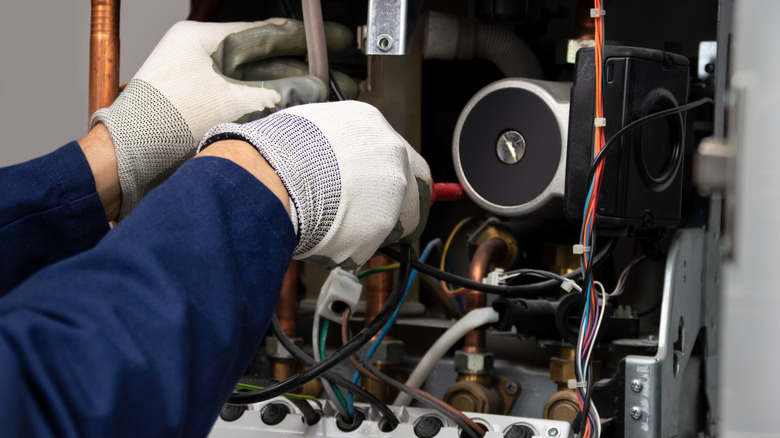The Most Overlooked Consideration When Starting A Winter Renovation
Renovation trends are prone to change during different times of the year. In January, homeowners are typically focused on indoor projects, like updating their flooring, whereas April is one of the best times to work on landscape alterations. This is mainly true in states that experience all four seasons because different types of weather can impact certain materials and a contractor's ability to get the job done. For example, a painter won't be willing to climb up your home's siding during a blizzard.
For those who live in a state that experiences chilly temperature drops during the colder months, there are a few things to consider before starting a home improvement project. It can be tempting to complete all of the residential upgrades you have in mind at the start of the year, but without the proper research, you could end up doing more harm than good. So, put that hammer and screwdriver down and contemplate some key factors before tackling your winter renovation.
Materials are more senstive
According to Realtor, homeowners should be wary of certain renovation materials during the winter. For example, plastic window sealants are known for being unable to stick when temperatures are below freezing, and timber is prone to swelling. "Do some research before starting your project," says James Leroy, contractor, owner, and founder of Pro Home Remodeling. "And make sure you have everything you need before getting started—including plenty of spares."
Best Pick Reports says paint is also a cause for concern during cooler months, but that doesn't mean it's impossible to work with. Doing this type of work in the winter means finding the perfect day with just the right weather conditions. It's suggested to wait until air and surface temperatures are above 35 degrees. This can often be accomplished by painting in the late morning once the temperature has warmed up and stopping by mid-afternoon so it can dry before the cold evening air sets in.
Safety concerns you need to know
There are also safety concerns to be aware of if you plan to take on a winter renovation (via Realtor). If you're hoping to work on electrical issues, it's vital to understand that circuits and fuses can act up if they somehow get wet. Wires can also be damaged by cold temperatures if insulated incorrectly. According to Little Sparkie Electric, electrical fires increase by 10% during the winter. So if homeowners are experiencing electricity issues, they're advised to call professionals to prevent more damage from occurring.
It's also wise to exercise caution against snow or ice because it can be a major slipping hazard — especially for those working on the roof. Homeowners should also look out for chunks of ice falling from the roof and scaffolding when working below. And since nobody is immune to the cold, make sure to dress for the weather to avoid hypothermia and frostbite.


